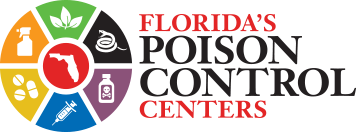Suicide
Suicidal Callers
Every day, Florida’s Poison Control Centers receive calls about people who have attempted to harm themselves with a poison. Sometimes the individual affected makes the call; other times, these calls come from hospitals or emergency responders. Sadly, most fatalities recorded by poison centers involve people who have purposely taken a deadly dose of either a medication or exposed themselves to a chemical.
According to the Florida Department of Health, several hundred Floridians die as a result of suicide by poisoning each year. Poisoning is the third most common form of suicide nationwide, after the use of a gun and suffocation.
Poison specialists consider any attempt to hurt oneself a mental health emergency, even if the substance taken wasn’t deadly. It is critical that anyone who feels the desire to hurt or kill oneself (or who has acted on that desire in any way) gets immediate medical care.
Callers who need in-depth crisis counseling are referred immediately to the 988 Suicide and Crisis Lifeline unless they’re at extreme risk; in that case, they’re kept on the line until emergency medical services arrive at the scene. 988 connects individuals or families to their local community crisis center 24 hours a day, seven days a week, and can make referrals to inpatient resources nearby.
Resources
For more information about the problem of suicide, visit the 988 Suicide & Crisis Lifeline, the Suicide Prevention Resource Center, Florida Office of Suicide Prevention, or Florida Department of Children & Families-Suicide Prevention.
Suicide Warning Signs
Suicide Warning Signs
- Talking about wanting to die or to kill themselves
- Looking for a way to kill themselves, like searching online or buying a gun
- Talking about feeling hopeless or having no reason to live
- Talking about feeling trapped or in unbearable pain
- Talking about being a burden to others
- Increasing the use of alcohol or drugs
- Acting anxious or agitated; behaving recklessly
- Sleeping too little or too much
- Withdrawing or isolating themselves
- Showing rage or talking about seeking revenge
- Extreme mood swings
This information was drawn from 988 Suicide & Crisis Lifeline.
Preventing Suicide by Poison
Suicide is preventable. To help prevent suicide by poison:
- Remove old or unneeded medications and chemicals from the home. Do not stockpile medications “just in case.”
- If someone in your home is at high risk of suicide due to depression or a recent crisis, make sure all medications are secured and are given out by a responsible caregiver. Select a medicine lock box, bag or even a safe to store prescription medications, over-the-counter medications for pain, allergy for example, as well as high risk chemicals, such as drain cleaners or pesticides.
- Remove excess alcohol from the home. Do not assume children and teens do not know where alcohol is kept.
- Seek mental health care for family members or loved ones facing crisis. Do not wait for self-harm to seek help.
Download our flyer on “Self Harm by Poison” to raise awareness of this important issue.
Download Our Flyer
Download Our Self-Harm by Poison Flyer.

